
Podcast Your Story: Amplifying Women's Voices in Podcasting
Podcast Your Story is all about helping purpose-driven women own their voice and share their stories as powerful podcast guests and hosts. Whether you’re dreaming of becoming a sought-after podcast guest, ready to launch your own show, or grow an existing podcast, Podcast Your Story is here to guide and support you every step of the way. Listen to inspiring stories from women who are using podcasting to amplify their voices, share their stories, and grow their visibility.
Host Dr. Julie Marty-Pearson, Podcaster, Speaker, Visibility Coach & Podcasting Mentor, brings you practical strategies, honest conversations, and inspiring stories from women who are using podcasting to share their stories and grow their businesses.
Each episode focuses on a powerful theme— from how to become a confident and memorable podcast guest, to how to launch your show without the overwhelm, or how to craft your message for maximum impact. You'll hear a mix of solo episodes, expert interviews, and behind-the-scenes insights designed to help you show up, speak up, and shine.
Because YOUR STORY MATTERS. And your voice is meant to be heard.
Thank you for listening to Podcast Your Story. If you enjoy the show, I’d be so grateful if you’d subscribe, leave a rating or review, and share it with another woman who’s ready to use her voice to transform her life and inspire the world.
About Your Host:
Dr. Julie Marty-Pearson is a Visibility Coach, Podcasting Mentor, and Community Builder for purpose-driven women who are ready to own their voice and share their story. She coaches people to grow their visibility and confidence through podcast hosting, guesting, and speaking.
Julie hosts two podcasts:
🩷 Podcast Your Story, which focuses on amplifying women's voices and practical tips to grow their business through podcasting.
🩷 The Story of My Pet, a Top 5% podcast, sharing inspiring tales of pets focused on advocating and educating for animals rescue, fostering, and adoption.
Julie also created and hosts two communities:
🩷 Women's Podcaster Party Networking Community, for podcasters, guests, and speakers to connect and collaborate. Come check out our Monthly Networking Events.
🩷 Podcast Your Story Community which supports women and non-binary people to become and grow as Podcasters, Guests, Speakers, and Storytellers. To learn more and join, visit Podcast Your Story Community Membership.
Connect with your host–
Website - YouTube - Instagram - Facebook - LinkedIn - Pinterest
Contact your host: julie@podcastyourstorynow.com
Podcast Your Story: Amplifying Women's Voices in Podcasting
Power of Storytelling: Navigating Grief & Chronic Illness with Melissa Reich of Your Bish Therapist
Navigating Loss and Healing Through Shared Stories
Grief is a complex journey that touches us all, yet we often struggle to navigate its unpredictable terrain. In this heartfelt episode, I sit down with Melissa Reich, a licensed therapist and host of the "Your Bish Therapist" podcast, to explore the intricate layers of loss, healing, and resilience.
Melissa courageously shares her personal battle with cancer, offering a raw and honest perspective on living with chronic illness. Her story serves as a powerful reminder that our struggles, though unique, connect us in profound ways.
The Complexity of Loss
- Why comparing grief experiences can be harmful
- How new losses can resurface old pain
- The importance of acknowledging all forms of grief, including the loss of health or abilities
Supporting Those in Pain
- Practical ways to show up for loved ones facing illness or loss
- The power of simple gestures and genuine presence
- Why avoiding toxic positivity is crucial in comforting others
Honoring Those We've Lost
- We pay tribute to my friend Rebecca Johnson, whose light continues to shine through her podcast "Love is Not Dead, Just My Husband." Her approach to grief and illness serves as an inspiration, reminding us of the healing power in sharing our stories.
This conversation offers valuable insights for anyone grappling with loss or supporting someone through difficult times. Join us as we explore how to embrace our grief, honor our loved ones, and find strength in our shared experiences.
Melissa Reich (pronounced Ryke) is a licensed therapist and two time cancer survivor, who shares personal and professional experiences on her podcast. The podcast focuses on clinical interpretations of observable behavior in pop culture and discusses the intersection of mental and physical health. Melissa hosts the Your Bish Therapist podcast as a real life therapist serving Clinical interpretations and hot takes on all things pop culture. Learn more about Melissa by following her on Instagram,
Connect with your host, Dr. Julie Marty-Pearson –
Website - Instagram - Facebook - LinkedIn - Subscribe to my YouTube Channel
Contact your host via Email: julie@podcastyourstorynow.com
Are you a Podcast Host or Guest or want to become one? Join my new membership Podcast Your Story Community
Come network with other podcast hosts, guests, & speakers at the free monthly events in the Women's Podcaster Party Networking Community.
Shop our affiliate partner Nuvita CBD Use code Julie10 for 10% off!
Listen to The Story of My Pet Podcast- Website - Instagram - YouTube
Do you have a story that you want to share with the world? Do you think your voice needs to be heard? Well, I'm here to tell you that podcasting is the fastest way to share your story with the world. Hi, welcome to a new episode of Podcast your Story. I'm your host, dr Julie Marty Pearson, and I am so happy to have you here for a brand new interview that I have done with Melissa Wright of your Bish Therapist Podcast.
Speaker 1:I met Melissa through another podcast. The podcast is Drama Darling by Amy Phillips, who has been a longtime comedian, radio host and podcaster who covers reality shows, specifically Bravo reality shows. If you don't know this about me, I love Bravo. I am all about Bravo and all of their reality shows. It is actually how I decompress. As someone with an education in psychology, I also love watching reality just for the psychology of what people will do on camera. But anyway, I love reality and because of that I followed and listened to Amy Phillips and through that I met Melissa, who has been many times a guest on her show and a co-host.
Speaker 1:Melissa then started her own show where she really breaks down reality and other types of television from the mental health perspective. From the mental health perspective. She is herself a therapist and has worked in many areas of the mental health field, which you'll learn more about. But one day I reached out to Melissa, partly because she's a podcaster and in the mental health field, but also because that she herself is a cancer survivor. I really love the way she approaches her content and her episodes, but I also really love how open and honest she is about her own mental health, her own health journey and the battle she has faced since she was a teenager dealing with cancer.
Speaker 1:Last year, I lost a fellow podcaster and friend, rebecca Johnson, to cancer and really struggled with how to deal with the grief as well as to honor and remember Rebecca. So one of the things I did was I asked Melissa if she would be interviewed for my podcast and talk about her experience, but also help me to talk about the ways that we can support our friends and family when they're going through serious illness like cancer. I don't know about you, but sometimes I feel like I don't know how I can help, and me asking how can I help you isn't really something they need to be worrying about. So this is a very honest and raw conversation that Melissa and I had, talking about her cancer journey, how she thinks people can help their own friends and family, as well as talking about her podcast journey and how podcasting has changed her life. I know you are going to enjoy this interview and I cannot wait to hear what you have to say after, so please make sure to reach out to me on social media, on my YouTube channel or via email, and let me know your thoughts after you listen.
Speaker 1:So now I welcome Melissa to the Podcast your Story podcast and I can't wait for this interview. I think I'm fangirling a little bit here. I am so excited to welcome Melissa Reich. I hope I just spelled your name right. Okay, welcome Melissa Reich to the podcast. Hi, melissa, thank you so much for being here, hi.
Speaker 2:Julie, thank you so much for having here. Hi, julie, thank you so much for having me. I'm honored and I'm very excited to be here, so thank you.
Speaker 1:Yes, I am super excited for this conversation for many reasons, but to get started, I want to explain to the listeners how I met you via social media and your podcast. So Melissa has a podcast called your Bish Therapist Anyone listening who is a Bravo fan will get the name without us explaining. So I would say you know, going back years, it started with Amy Phillips, who used to host Reality Checks on Andy Cohen's channel on Sirius XM, who then started her own podcast, drama Darlings, and I believe it was on the podcast that you first started speaking with Amy about Bravo-related topics. Is that correct or were you on her radio show?
Speaker 2:No, so that's absolutely correct. I was a caller into her radio show because she and I DM'd a lot and she just said that she's like you're interesting, I like your point of view. Call into the show and so I would call in as she was getting ready to leave. And then, when she went over to Drama Darling, she said you know what, I'm starting this new show. I like what you got going on, so why don't you come on the show? And your bitch therapist was born. I love that.
Speaker 1:That all is making sense to me now. I do remember there were points at which callers would call in, especially when we were talking about psychology-related things on her radio show. But specifically so Amy's shows and podcasts are all about, you know, going over reality shows mostly Bravo, but all types and so one of the things that always comes up whenever we talk about reality, of course, specifically, especially, I would say, housewives shows is why do they act this way? What is the psychology behind their behavior? So that's kind of where you came in to kind of give your guidance. So what has that process kind of been like for you to start to use your background as a mental health therapist into the TV pop culture world?
Speaker 2:You know, it's funny because I was just talking about this with my own BISH therapist, because I was just talking about this with my own Bish therapist, who I call my listeners grand Bish therapist and my therapist loves that. I call her that. She's like I am honored, I am so honored. But so there's a lot of skills that I didn't realize are transferable from being a therapist, a practitioner, to this pop culture space. However, what I was not prepared for is that, you know, I was always the type of kid who grew up and was like why are people treating me this way? Why do people behave this way? Why are adults so grumpy? Why Like, why, why, why, why, why.
Speaker 2:You know, I have always loved the pop culture space. I was always one of those people who I loved, you know, like the gritty pop culture stuff, like Rock of Love and Flava Flav and the Surreal Lives, you know all of that sort of stuff. And then, when Housewives came about, I just was in love. Season one, episode one of Roni of OC. I was just. It started a love affair. So what's fascinating to me is I would do what I'm doing now, but in my own head, and I had no idea how much people would be interested in what I had to say.
Speaker 1:Or that other people weren't having those thoughts too, right, I think, working in education of psychology, our brains work a certain way because of what we know, right? But yeah, that I love that that you didn't have any idea. People would want to hear what you're thinking in your head.
Speaker 2:Oh, because you know, again, I'm accustomed to believing that, you know, people don't care about me or care what I have to say. You know, thanks, trauma. So I just it just never occurred to me. And then when I started in this space, when Amy had me on her podcast, you know, she said I really think this is something she's like between you know your clinical experience and your personal experience, and just the way that you speak about things. She's like I think that this is a niche that is like untapped. And let me be clear, there are other therapists who do this. I am honored that I have just had a lot of success which, trust me, is shocking to me, first and foremost.
Speaker 1:No one's more surprised than me. I get that, right, I think, especially because in like the psychology world, like our job is one-on-one, or in small groups, like it's more of an intimate thing that you don't think someone would like to hear that conversation to the masses. Right, no one would want to hear what I have to say. But it's so funny how you explained your love of reality, because I know oftentimes when I tell people, oh, I love Bravo, I love all things Bravo, I love Housewives, I love all of that and they look at me like, really Like well, it's an outlet for me, it's a way to kind of just turn everything else off, watch it, be like this is crazy or oh my gosh, I love this Right and I think it's it's.
Speaker 1:For me it's always been kind of a way to turn off all the other noise and just kind of watch something for fun, but it still stimulates that psychologist in my head which is all you're right, which is always.
Speaker 2:This brain of mine is just always thinking so it was a lovely distraction, fully agree with that. And, to be fair, it also was like, you know, I've had a lot of trauma but my life's not so bad, because, you know, we tend to think that like money or fame would change that and it's like, no, it just makes things more complex. And so it was. This like duality of it kept me mentally stimulated, but it also was such validation that you know, maybe I'm doing all right here Me and my life isn't so bad after all.
Speaker 1:Yeah, I've always said there's a there's definitely an element especially with housewife shows that money doesn't cure all. Money doesn't make you happy. Money doesn't mean you're happy. There's this level of oh, it's so opulent and all these amazing trips and parties and all of that, but that doesn't mean they're happy and have a good marriage and have good relationships, Right?
Speaker 2:So I've always kind of felt that validation of it's interesting.
Speaker 1:I mean aspects of it. Sure, who wouldn't love to fly private or whatever it may be? But that doesn't mean their life is easy.
Speaker 2:So I get what you're saying, and you know, what's fascinating too is in my career I have had the pleasure of working with a very diverse background of folks, and so what's interesting is I've worked with folks in lower socioeconomic status, but I've also worked with folks in very high socioeconomic status, and the problems are similar but they present very differently. And so having that experience with people maybe who are wealthy or in higher socioeconomic brackets, working with that, it kind of does give me this little insight into some of these you know, rich women and some of the issues they may present with, and how different that is from someone who you know is in a different socioeconomic bracket, if that makes sense.
Speaker 1:No, that makes total sense. I just was thinking. A friend of mine who's a clinical social worker. Whenever I talk to her about her patients, she says well, you know, it doesn't matter, we all have the same complaints Our spouses, our jobs, our bosses, you know, family drama we all have the same things. It just looks different depending on who you are, where you live, like you said, your socioeconomic status, and I think what I've always found interesting with housewives is when we start to learn about their childhood, because a lot of them were not born into money or high class living, and so we can kind of sometimes go oh, that's why you're reacting that way. Right, yes, but it makes sense to us.
Speaker 2:That's exactly right. And then you can tell some of them who did grow up with money. There there is still drama. It's just more subversive, like rich people have problems, but they're just very like let's not talk about them, let's just pretend they don't exist.
Speaker 1:We can use our money and our status to kind of as a shield and as armor and all of that, and so you know that that's been interesting too, yeah, and I think that's kind of what I think we're living, that in a lot of areas of the world, of how rich people use that to gain power, but that's a whole nother podcast interview Ding ding, ding, ding, yes, but ding yes, yes.
Speaker 1:So that's kind of we've talked about like how your world collided with reality and then created your podcast. But before all of that, and obviously still now, you are a licensed therapist. So what can you tell the listeners a little bit about who you help, what type of work you've done to give them a sense of like kind of how who you are as a person helping others in the mental health space?
Speaker 2:Yeah, good question that when I went to college, I went to Penn State University in Pennsylvania and I did my undergrad in psychology. But I wanted to give myself some actual experience before I went to grad school, which no judgment ever. You either. There's really two options you either go right to grad school right, which you're familiar with, or you work in the field and then go. And so I knew, because I'm very type A, I wasn't worried that if I took a break I wouldn't go back because I am psychotically focused, which is part of my problem. But so my first job I actually worked at a place called oh I don't know if I should say the name of it now that I'm thinking about it. Okay, so I'm not going to say the name, but it was a very intensive scenario where it was a unit of girls from ages 12 to 18. It was like a residential treatment facility, and so my first job was really dipping my toe in the pool of. Does this make sense for me? Because I'm also painfully practical and I was like I don't want to go right for school if, like this isn't really what I want to do me, is that my relationship building skills with people, aside from the clinical interventions and the clinical knowledge. For me that is my strength is connecting with people, seeing them, making them feel seen. I just have that way about me and I didn't really know that until I worked at my first job. And so from there I have worked in inpatient residential treatment facilities for drug and alcohol. So for a lot of my career I focused on drugs and alcohol and I did individual therapy, group therapy, family therapy, couples therapy. I've kind of done it all. I've worked with people in Northeast Philly and then I've also worked in other locales, so I really have seen a gamut.
Speaker 2:But my focus has always been really on adults, individuals with anxiety, depression, trauma. That's kind of my sweet spot, as I like to say, just of my therapy style is not for kids, it's really for adults. And so my first job I did work with kids and I really had a hard time with it because my style is so adult and if I'm being frank, I'll be honest and share that. You know I hadn't processed my trauma when I started working in the field and so my inner child stuff was still so painful and so I think that also, if I'm being candid, you know, really presented a hurdle with kids, you know, because I was so out of touch with my stuff, which you know it's interesting as I've gone about my clinical career, my own stuff has really made or broken my experiences, and so what I will say is that I haven't practiced since the pandemic due to health issues that I've had and I was searching for.
Speaker 2:Am I going to go back to work, you know, with my health stuff? What do I do? And therapy to me is truly so sacred. It is, I mean and I'm trying to think of the word that I want to use I just take it so seriously and it's so sacred to me that I was like, well, I can't practice if my body is unpredictable.
Speaker 2:If I'm waking up one day and I'm like I don't know if I can do this, that's irresponsible to you know, to treat Like what even is my purpose and then, boom, this falls into my lap, and so it's very different. But I do get a lot of messages about you know, wow, you really helped me to see this. I had someone tell me the other day that, you know, listening to my podcast helped them extricate themselves from an unhealthy relationship. Extricate themselves from an unhealthy relationship, and you know so this is a very long winded way to say is that I just love helping people and I love making people feel seen and feel understood, and so now I just get to do that on a greater level, which also comes with pros and cons, right, because in therapy it's just one person projecting their stuff onto me, right?
Speaker 1:Just one.
Speaker 2:But now on the internet it's 14,000.
Speaker 1:And they all have an opinion about it.
Speaker 2:Oh, now don't think they have an opinion about it. They have an opinion about me, honey, and they're like you know, I am not accustomed to having people really dislike me. It's never something that I've really been used to. I've, you know, always had maintained friendships and done well socially. And now all of a sudden, in this space, people really dislike me, and so that's just the Internet.
Speaker 1:Right.
Speaker 2:But that is the one piece that I will say I was not prepared for is just the mass projection onto me and people taking all of their stuff about bad therapists or someone who's hurt them and they're putting it onto me journey.
Speaker 1:Yeah, that that totally makes sense to me because in therapy you're getting one person possibly projecting on you and you know why, or you know that's happening, and it's much more of a controllable process. But I can imagine five hundred or a thousand people commenting on an episode or a reel or whatever You're like. Ok, that's a lot. I can't take all of that.
Speaker 2:It's so much. It's so much. It's great because I have a wonderful community of folks that they are just so engaged and they will share their thoughts and I do. I will get hundreds of comments and there's some days where it's like I can't manage this, but I love it. I love that. You know it's a place for people like us to go to. I call it like ethical reality TV. You know, I take something that may not be ethical or great and I use it to. You know, talk about these important concepts. I kind of joke. It's like tricking kids into eating their vegetables.
Speaker 1:No, it's so true. You're using it as a vehicle to educate and let people know. You know it's OK to feel this way, it's OK that you've had this issue. You're not alone. I say that all the time to women I work with who want to start a podcast. I'm like the purpose you may not know, you may not know who you're going to reach, and I would say you never know who might hear this episode and be impacted and it may have nothing to do with what you were talking about, and so there's a power in that. And I also find that podcast is such a great tool for building community. Like you said, you have this great community and I think that's really powerful for everyone, but especially us as women, to connect with people that we wouldn't have ever connected with without it.
Speaker 2:It's such a huge, has such a huge reach. I'm always shocked when I see countries that are listening to one of my podcasts. I'm like, ok, right, one episode. I just went through all the locations where people are listening and I'm like, how are there people listening to me in North Korea? I am gobsmacked. But thank you, thank you so much so.
Speaker 1:My first podcast, the story of my pet. I'm always shocked when I see Ireland, you're on the top chart. Norway, I'm like, okay, you know even countries that English isn't their first language. You're like, well, it's very interesting. You just never know. And that does segue into something else we will talk about in a few minutes.
Speaker 1:But I do want to say so much of what you have said in your history of your education and working. It's like ding, ding, ding for me. You know, originally I went through undergrad and a master's in psychology, straight into a doctoral program and clinical psych. And it was that first year of, you know, starting to do practice therapy and all of that, that I realized I can't do this, I can't take on everybody else's stuff. I just realized, because you know, whatever you call it empath, whatever.
Speaker 1:Whatever you call it empath, whatever, I've always been an introvert, but I've always been great at helping people through difficult times and understanding what they're trying to say and all of those things. And, like you, I didn't realize it was a skill until one of my professors said you're really great at this, you should come do research with us and do focus groups and interviews, you know. So I thought oh, that must be, and I should be a therapist. But psychology is so broad in some ways. There's so many ways we can use that education. So you're making me feel, seen, I'm like I get it. You think you should do things because that's what you're good at, but it still may not be the right place for you and I think that me doing this right.
Speaker 2:It shows how we can do what we do in so many different ways. There's not just one right way, or even two. You know it's like and the ability to shift. You know as, as we relate so much because doing this and and going outside of our comfort zone it's very uncomfortable, but it's. It's some of the greatest stuff I think I can speak for me I've ever done Right.
Speaker 1:Absolutely. Me too. I've made some of the best connections and friendships and met some of the most amazing women, especially that I'm like I would have never met you women. Especially that I'm like I would have never met you. And for me, as a 47-year-old woman without any human kids only for kids I always felt very alone in that, because most of my friends and family have kids and have that journey, and through podcasting, somehow I've met so many who are very much like me that it's like, wow, okay, I'm not alone. In a way that I always kind of felt on the outs. And that is the power of podcasting, I think.
Speaker 2:And I think for me you know and I know we'll talk about this, but losing my ability to have children via ovarian cancer when I was young, it does validate so many women who, by the way whether you want children or not, it's like childless women are seen as well. We know how we're seen Less than no value all the buzzwords.
Speaker 2:And so what I find really special and important is changing that narrative, because look at the work that we're doing Right, and so I think there needs to be the societal shift away from. Women are valuable in many other roles other than mother, maybe some in addition to or other than, or what have you, but that's for me. I'm just a huge advocate, I'm very outspoken and I am just a champion for women in that way, and I just couldn't be prouder to do that, absolutely.
Speaker 1:Well, I am a very proud auntie. I have many both blood and non-blood nieces and nephews, as well as fur babies that are I am auntie to, and I take that role very seriously and I love it very much. And I know, for me personally, not having kids was more of a choice, although many doctors said we're not telling you not to, but we're not sure how your body will respond. I have autoimmune issues since I was young. But when I did have a hysterectomy I didn't anticipate the emotional and psychological feelings I had because it was like you know, I'm not going to have kids. This isn't a big deal. I need to do this for my body.
Speaker 1:But then I was in my room on the wing where all the babies had just been born, hearing all the babies cry overnight as I had just had my uterus removed, and I did not expect that. I didn't even think about where I would be that night, let alone what that experience would be like. So I think that's important because I know now there are other women who have felt that and have also felt alone and not understanding how to feel like that and, as women, no matter how we lose it, whether we've had kids or not losing that ability to have children impacts you, no matter what you think it will. I have learned that, and so I think, like you said, podcasting has given me a way to connect with people and women in a way I never would have been able to, and five years ago, if you told me I had a podcast, I'd be like what are you talking about?
Speaker 2:Same. I joke all the time that I am tech elderly, and it is not so much a joke and more a truth. Elderly, and it is not so much a joke and more a truth. If someone would have told me that I would have this complicated setup, that I would be doing this, I would have said that you were on mushrooms or some sort of psychedelic and I am so sorry that I can't help you. But you're right. I mean, I talk to people every day for the past year that before I even started doing this, I didn't even have them in my life. And now there's so many people like you and other folks that I talk to on a day-to-day basis that a year and a half ago they weren't even on my radar.
Speaker 1:So it's just it's wild, it's cool, it's stressful, it's beautiful, it's all's, all the things, all the things and sometimes all the things in one day, right, sometimes. Yes, that's correct, yes, you got it. But I do think that COVID shifted that for a lot of us like it, for one kind of stopped the world and we weren't doing what we'd always been. And then it also made us really realize how fragile life is and how quickly life can change.
Speaker 1:And I think I've met so many women that made shifts in some way since then, because they wanted to do what they wanted to do. They wanted to feel proud about their work or their side hustle or whatever it may be, and it's very stressful to go out and try something completely new. It's very stressful to go out and try something completely new. And you know, but for me, meeting people like you and so many others, it's like. This is why I'm here. I'm connecting with women who I need for the rest of my life, because you know, we're all going through something and we need that support so much. So so that's right, yeah, that's right.
Speaker 2:And I, oh, I'm sorry, no, go ahead. I think that for me, having community is so special and important because not all of us were privileged to be born into a community that we should have been born into. And so you know, like you said, it's not just about blood, it's about those relationships that we make for ourself in adulthood, that support us, that lift us up, that, you know, maybe we didn't have the opportunity to have growing up, and so for me, that's the greatest thing, and I'm just really resonating with that part of what you're saying.
Speaker 1:Yes, absolutely so. Speaking of someone I met through podcasting, one of the reasons I reached out to Melissa to ask her to be on the podcast was a couple months ago, a friend of mine, rebecca Johnson, passed away from cancer and even though we knew ultimately five days before she passed that there were no more treatment options, she was going on hospice. We were all processing that. No one expected it to happen so quickly and so we were all kind of just stuck in this shock, this like what do we do? And if you want to learn more about Rebecca, you can listen to her interview on this podcast. I'm very grateful that I got to have that space with her before she left, because it means a lot to me and so many others now. But one of the reasons I reached out to Melissa, to you specifically, is because you are very open and honest about your own journey with cancer and having survived twice. So I kind of said to you I'm not trying to put my grief on you, but I need some help understanding how to process this Ultimately.
Speaker 1:There's two things I have felt since then is one how do you process a sudden loss of someone who was so bright and full of life. And the other side is for women, for anyone who has someone in their family or friend that's going through cancer. How do we support them best? Because you know there's that I don't want to bother you, but I want to be here for you, but I don't want to push myself on you all of that. So those two reasons were the reasons I messaged you and said, melissa, would you come and talk to me about these things and talk to me about these things? So share as much or as little as you want about your own cancer journey. To kind of give a sense of why I reached out to you for that.
Speaker 2:I and first of all, I am honored to be here to kind of memorialize Rebecca and also to give her pain meaning and power, because that's all I can do for myself and that's all I can do for my fellow survivors and thrivers and people that we've lost too soon. So when I was 17, I was diagnosed with end-stage ovarian cancer. This was in 1998 and it was stage 3c ovarian cancer. It was misdiagnosed for a long time because I was medically neglected by my family and by doctors because I was living in an area that is terrible.
Speaker 2:I was born and raised in Chicago, but we moved to a very small town in Pennsylvania and that is when I got sick, which is like, oh, if I was in Illinois, I really think I would have fared much better, which is that's right. There's part. So everything I'm explaining here is like grief is so complex and grief it's not just like we don't have grief buckets. When you have grief in one area, it triggers grief in another area and another area and then it becomes like a game of dominoes and before you know it, it's like you're just drowning in grief.
Speaker 1:And I have to say one thing I've always said about grief to people is you can't compare grief. You can't compare grief of losing a person versus losing a job or a marriage or a home to an awful disaster, to losing parts of you for medical reasons, which I have gone through myself. That it's all grief and, like you said, it all goes to the same space and then it just piles up when you're not dealing with it.
Speaker 2:Yep, and it has a way of really just smacking you right in the face if you're not paying attention. So by the time my cancer was diagnosed, it was so far gone that in 1998, recovering from this stage of ovarian cancer, they were like we're sorry, were like we're sorry, you know. They suggested that my parents make accommodations and, you know, basically plan my funeral. And my parents, they took me to a hospital that they wouldn't even agree to treat me. They were like we can only offer you like hospice. And my parents, fortunately, were like, nah, we're going to, we're going to look at something else. And so they took me to Penn Medicine, who you know.
Speaker 2:After I had, I think it was like nine or 10 months of chemotherapy, I had three hysterectomies which how Three? So the first one I had was when I was 17. They wanted to try to preserve my reproductive organs because I was so young, you know again, in case I did want to have children, which I did always want to have children. And then. So the first hysterectomy was just one ovary and they found that I had two liters of fluid and thousands of invasive tumors from my diaphragm all the way to my pubic bone, in addition to two tumors the size of softballs.
Speaker 2:So the first surgery was to debulk that. Then I did chemotherapy and then I had another surgery and they said, unfortunately we can't save the ovaries, and so they left in my uterus and my cervix. And so the ultimate insult to injury was after I recovered from all of this. I was put on because I have a uterus and a cervix. It's very complex, you need to do hormone replacement, and so, to add insult to injury, I had all of that happen and I still proceeded to get a period for the next years of my life.
Speaker 1:Yeah, that's not right. 20 years of my life? Yeah, that's not right. I can say that personally because that was the purpose for me. To get my uterus removed was for no more periods because it was awful. But come on, you're going to go through all that and still have that.
Speaker 2:So I have all of these scars. My abdomen looks like I was attacked by a cheetah, these scars my abdomen looks like I was like attacked by a cheetah, and I've had two hysterectomies at this point chemotherapy, and I still was having periods and it was crazy. And again, all of this was in the effort but, ps, none of this was made by me. None of these decisions were made by me. These were made by my parents and doctors, whose society was like well, we still want to maintain her ability to have kids, but no one thought about what my quality of life might have been Right.
Speaker 1:You're recovering each time and oh, I can't even imagine how you felt before that with all of that in your body, not knowing it, and then to have piece by piece taken out like just do it all and get it over with. You know, I can imagine that feeling.
Speaker 2:I wish I would have had you as my doctor, but no. So although I have to say the people at Penn were great and so miraculously they still my doctors say to this day I am in a medical journal that they are like shocked that I was not only able to get into remission, I sustained it for that cancer, and so I basically what happened is I recovered in time to go to college. I hadn't applied to colleges because I thought I was dying, and so you don't apply to college when you think you're dying. So I applied to college. I just like I was so traumatized but just had no idea that how bad it was Right, and I just went off to college. I found psychology. I just like fell in love and it became my distraction technique from the anxiety that I was feeling, from PTSD that was undiagnosed Now. So I was able to have my career and work and all these things.
Speaker 2:And then, when I was 35, I was diagnosed with my second cancer, which I am currently dealing with, which is called chronic lymphocytic leukemia. Chronic lymphocytic leukemia is a chronic cancer that there's no cure but there's treatment. So I've been doing immunotherapy for the past five years. I have to continue that for now, and it's basically the kind of forever cancer until there is some sort of a cure for it, which my doctors are hopeful in my lifetime there will be.
Speaker 2:But with chronic cancer it's like even my experiences with cancer are so vastly different. One was like acute, it's going to kill you right now, immediately, like press the fire alarm. And this cancer it was like slow growing and it was like I was in a watch and wait period which is basically just waiting for things to get bad enough. That necessitated treatment, but because the treatment that I'm on right now, it did not exist when I was first diagnosed. That is how the light speed of blood cancer research is truly amazing, and I don't think that I would even be here talking to you today if it weren't for some of those advances, because my CLL, because of my history of cancer and because of that chemotherapy I've become a medical unicorn.
Speaker 1:I've become, which is not something you want to be people.
Speaker 2:No, it's awful because it's like I have 27 specialists. None of them want to work together. The medical system is a nightmare, and so what's frustrating now is that medical system is a nightmare, and so what's frustrating now is that it's dealing with the grief and the loss and all that comes with my body, just basically decompensating over the past, you know, 10 years. But it's also the emotional stuff that comes with that number one and number two. It's constantly managing anxiety of like it's just try to think about the fact that you want to die with this, not from it, and it's like, oh, no problem, I guess I just won't wake up every day and think about that obsessively.
Speaker 1:No problem in general medical practitioners, but also us, as people don't realize the emotional, psychological toll of chronic, everyday medical issues. And although I've never had cancer and I cannot speak to your journey at all in that way, having had autoimmune issues since I was in sixth grade and having doctors tell my parents she's just faking it for attention, there's nothing wrong with her and the psychology of not getting to go to school for almost a year, all of those things at the time impacted me and still do. Because of it shapes us and you waking up every day with the knowledge of you have this and have to live with it, on top of the fact that you don't know what every day is going to look like.
Speaker 2:Some days are great you have energy the next day.
Speaker 1:You're like I can't get out of bed today and people don't get it especially when it's not visible. They don't. Oh, you're fine. Well, I look fine, but I feel like I need to sleep for 13 hours, right.
Speaker 2:Exactly. And you know, what's funny is that I have never looked better. I will acknowledge that I have never looked better, and it is such gaslighting of my own body, it makes me so mad that I'm like, because my skin is gray, I look youthful and so, yes to your point, the psychology behind the invisibility of our illnesses is so frustrating and I do get constantly gaslit because people are like well, you look great, so it can't be that bad. And, to be fair, you know, you said something that I want to be clear. It's like when your body betrays you and you are stuck in a medical system that is, you know, patriarchal and gaslighting you.
Speaker 2:I was told twice that I was a hypochondriac twice and twice it was cancer. Oh my God, I can't. But the point is it's like it is. It creates this emotional stress, psychological toll. That is what my podcast, that is what I speak to, because, whether it's cancer or autoimmune issues or being gaslit by, you know, a patriarchal society, whatever it is, we know what that's like, and so so do so many other people, especially women, because there is a higher incidence of autoimmune issues in women, which I believe is related to patriarchy and our emotional selves and being told oh well, you're just some crazy broad, so just you know, deal with that. Whatever Right, it all plays a role. Stand up professionally. It's just my greatest joy to let people know this is how it is. It sucks. You're not alone and you know. Yeah, it's wild.
Speaker 1:Yeah, and there's. So, like you said, there's so many elements to it. I have friends who've had to battle their insurance just to get a diagnosis for something, or you know. There's just so many layers to health and wellness and dealing with any type of chronic issue, both physical and mental health wise, and there's also this feeling of I'm not supposed to talk about it because then I'm a complainer and I'm you know all these negative things that we're told, and that's why even talking about menopause and perimenopause was so taboo for so long. Oh, everybody deals with that. Just keep it to yourself. We don't want to hear about it. And it's like no, you're going to hear about it because I'm not crazy. I am dealing with a lot of hormones that I don't know, how to handle.
Speaker 1:I know for me, even just after my hysterectomy, I would cry for no reason, and that was something I never did. I was never a crier or an overly emotional person. I'd be like what's wrong with me. But it's like why don't you prepare me for the things that could be changing?
Speaker 2:Because and that is why I'm here to do what I do, because women, I literally woke up in the hospital and they were like we've removed your parts. They threw a pack of birth control at me and they were like you know, good luck. And it's like women's issues are underfunded, are under-researched, are under-prioritized. Yet this is an experience that every woman on the planet, since the beginning of time, has dealt with, and there are absolutely psychological implications of hormonal disruption due to menopause, perimenopause, autoimmune issues, whatever it is. There absolutely is an emotional, physical, like highway, it's like the gut access highway that's what they call it, and there are connections here that I am happy to shout from the rooftops You're not crazy, I'm not crazy, we're not crazy. Society, just because they don't want to listen to us, crazy, irrational women, doesn't mean that we don't feel or experience something, and that's you know. So I think that's what's really important to you know, use our platform for right.
Speaker 1:Right, because what I've learned is it's not just the medical system itself, it's the physicians I've had, on at least two occasions that just popped in my head. Women physicians say things to me that scarred me emotionally. Say things like oh well, your breasts aren't as developed as they should be. You've been on birth control for so long and I'm just Like you, don't just make comments like that and think that's OK and so it's, it's systemic, as we both know, both for sure. Mental health wise. Physical health wise. Women's health wise support each other. So I could say to you now, in your world of managing a chronic illness, what are ways for you like? If someone has someone like you in their life and they want to be supportive, they want to be helpful, what would you say to them would be like this is the kind of thing I would like or not like.
Speaker 2:So for me, I am so assertive and outspoken that it is impossible for me for you to not know what I need, just because that's who I am. I am an Aries through and through, I am a Ram, and I think that's how I've survived, just like pushing my head to keep going Right. But if you know, someone in your life isn't as vocal and even people who are vocal, by the way, we still have needs, and you know I don't always express those because we don't want to feel like a burden and so my message to people is that if you are approaching someone with love and understanding, there's nothing that you can do wrong. Like you and I, usually there's nothing you could say to me that's wrong or hurts my feelings, because you're coming from a place of understanding and wanting to be helpful. So that number one is that so many people are afraid to upset their loved one. But if you really have that relationship, just know that's really not possible.
Speaker 2:Number two I think the biggest thing as a therapist and as a patient. What I'll say is it's important to ask someone are you venting or are you looking for solutions? Because one big thing I noticed with chronic health issues my husband is very guilty of this and he's working on it too is that when we love someone and we want to help them, we can become overbearing and just want to fix it and guess what? Can't do that you know. And so I think, as a friend, as a loved one, as a family member, it can even be acknowledging your feeling of helplessness or powerlessness and to say to your loved one you know, I feel helpless and powerless, this sucks, you know. Acknowledging that can just be very helpful. And then I think the last one for me is showing up in ways that you know the person well enough to know that they might appreciate this, you know.
Speaker 2:You know I will constantly tell people I got this, I'm fine, and I am and I do, but that doesn't mean it's still not good for me to get that support. So if you know someone is kind of like that, maybe just you know it's not sending a text, or you know, I know people are allergic to phone calls these days, which you know. Ok, that's fine, I'm a talker, I love a phone call, but I get it. So, whether it's just like something, a note, to let you know I'm thinking about you. I have this friend, kim. She sends me cards like still like a greeting cards, but that's special to me because I love a greeting card and I save them and you know. But again I'm an elder millennial, so you know, I am elderly, I get that.
Speaker 1:My mom still sends me cards, even though she lives 20 minutes from me, and I'll see her in person. She'll send me an extra birthday card in the mail, and you know. So I get what you're saying. There are ways that, for me, I love giving people gifts. I've been told gift giving is my superpower. I'm really great at giving people like the perfect gift. It's really hard for people to give me a good gift without me telling them exactly what I want.
Speaker 2:Oh, challenge accepted as someone who's a good gift giver like you.
Speaker 1:Challenge accepted, Julie, my husband has learned to stay on script, yeah, yeah, because I am so specific with gifts I give. It's like I have a hard time when people give me something and I'm like, well, what do I do with this? And that's awful and that's something I work on. I'm grateful for everything, but I love that you say that you know the person well enough to know what would help them, what would make them happy. And I think I had a hard time that with Rebecca in the last few months. I knew she was going through all this treatment and having all these side effects. I felt like I always wanted to message her or text her I don't want to bother you, but are you OK? And then, so that also can maybe not feel great on her side hearing that. So it is a process of learning what's right for that person that you're trying to support.
Speaker 2:And ultimately leading with love, though you can't go wrong. Right, you can't, you know, and to your point, something else you can do. If you don't want to text like are you OK? Because you know they're not, you can just send a love, you thinking about you, you're on my mind, you know, I saw this funny thing and I thought of you. Or I saw this dumb thing and I thought of you. Or I saw the sweet, whatever it is, that's OK. That's OK too.
Speaker 1:Yeah, and I think the same can be said for grief. I know for me having different types of grief in my life. For example, six years ago my dad passed away. He was 94 and a half, so when people would ask me, well, how old was he? And I would say that, oh well, like it's fine. Okay, it's like okay he died. Well, yes, he had a very long life, but it's still not happy, it's still not yay he's gone. Like people don't realize comments, how they reverberate, and that's a good example I love to share, because it's like you just don't say that to someone.
Speaker 2:And correct. My grandfather is 97 and he's still alive and he's like my best friend the only reason I'm normal I'm not joking, and I was talking about this with a friend that it's like I will never be ready to live in this world without him. So my grief is palpable. But it's like, yeah, he's 97. And that's how it goes. So two things can be true, right, someone can like OK, yeah, you die of old age, but it doesn't make it any less sad, I think. What people? My one bit of advice if the words at least are about to come out of your mouth, just take that, pack that up and go somewhere else with at least dot, dot. At least you had a good life, at least you, you can. You didn't have children, and so now you can focus on at least Right, the, at least stuff. When someone's trying to make you feel better, that's usually misguided and that comes off as very patronizing. So that's the one thing I can say to stay away from is the at least Right, the toxic positivity, right?
Speaker 1:And one thing I will always say to people in instances like that, it's like, yeah, but for me I only got him for 40 years of my life. It's never going to be so. Whoever it is and however you lose someone, it's OK to say yes, but, like you said with your grandpa, it was never going to be enough, right? And we lose people for different reasons. But and I think people have a harder time when it's someone younger than older, they like, oh, that's OK, they were old anyway. But grief is grief. I will say I think for me personally, dealing with the grief of losing Rebecca as a friend, even though I'd only known her a few years, there were these two pieces of one. Why am I so impacted when you know I haven't known her my whole life? You know, I even say it to myself it's not this, it's not that it's like, but that doesn't matter. And then the other side of it is what I hadn't really I was trying to think. I haven't really had this happen before.
Speaker 1:It's someone my age dying and we were like within a year of the same age, and so I think that was part of what what an amazing person she was, how much I loved her and was so grateful to be a small part of her life and her being. My age was like oh, this is a lot more complex than I expected it to be, and so I think Paris can sneak up on us in ways that we aren't prepared for.
Speaker 2:Because, to your point, what someone like Rebecca does is it makes us realize our own mortality and that is very, you know, existentialist stoics since the beginning of time have talked about memento mori, which is remember. We will all die and memento mori is really meant to be a philosophy of. Sometimes, you know, I am more acutely aware of my mortality because of my stuff, but Rebecca made you aware of yours and just as humans, existentially, that's extremely scary. It's unsettling because we like to think we're young and I'm going to be 44. I'm not young anymore and you know. So that's one part of it.
Speaker 2:But the other thing, julie, I want to make sure to tell you and your listeners, is that I like to say grief is the excruciating cost of love.
Speaker 2:Your listeners is that I like to say grief is the excruciating cost of love, and so it doesn't matter how long you've known someone, it doesn't matter, like when you connect with someone and you watch them decompensate and pass away, there is just such awful grief and sadness to that. Awful grief and sadness to that period, no matter what she died from or what happened. And then you know you add cancer to that and all these other things, I think also what I want to say is you might have a little bit of survivor's guilt. So I've lost people before with CLL in my community. I've lost people and it's been very hard and unsettling. People I've never met, but it's just like wow, this is very real. And I think that all we can do is validate and acknowledge that this is okay, and not gaslight ourselves, because society loves to gaslight and say, oh well, your grief makes me uncomfortable, so I'm going to tell you well, okay, she's in a better place, can?
Speaker 2:I curse yes, go ahead, fuck that. Ok, fuck that.
Speaker 1:Or that was two months ago. Like aren't you over it already? Like that kind of for the love.
Speaker 2:Yeah Well, maybe it took me two months to feel it.
Speaker 1:I don't know.
Speaker 2:Well, that's the other thing is that grief is sneaky and, like you said, what I believe happens as we get older, grief piles upon grief and so as we start to lose people right people, our age past people, younger people, older, family members, whatever it like builds on itself and it becomes harder and harder every time. And I think that's what people don't understand is grief is not linear, it's cyclical, it's circular, it's, you know very complex Combinations of everything and what I've also learned is that new grief brings up old grief.
Speaker 1:Exactly, you know, I think I've been more sensitive about things. Like I said, my dad passed away six years ago but, having kind of felt a lot more of it the last few months, Veterans Day was very hard for me and I'm like how many Veterans Day has there already been? Why is this? Why is me seeing a veterans post hard? My dad was a World War II veteran and I would get emotional just reading some of the people's posts and like why? Because, like you said, it's not linear. You never know when it's going to hit you and there's going to be little things that trigger it that you are not going to expect, but then there's also little things. That's going to put a smile on your face. For me, seeing a seagull is my dad and when I see one or a picture, or I see it in something I'm looking at, it puts a smile on my face because the beach was his favorite place. He loved to sit and watch the seagulls and that has been something a solo single has shown up for me many, many times since he passed and that's something I can hold on in a positive way, and so I think what with Rebecca's passing is what is that thing I'm going to hold on to? To be happy Because she was someone who was a lot of us have said it in different ways like a ray of sunshine, a light in a dark room.
Speaker 1:She just had this amazing personality. She never held back from it. She had a great Southern accent. You'd love to hear her tell stories. She had an amazing humor about everything, including her cancer. She was also someone, she. Her podcast is Love is Not Dead, Just my Husband. Oh my gosh, I love that.
Speaker 1:And she would say that and get very different reactions from different people. So I started a podcast to help process her own grief from a sudden loss of her husband and to help others. But she approached it in such a way that was like not making it so sad and awful and negative. And so she did the same thing with her cancer. I mean, she was diagnosed with cancer six weeks after her husband died. She is someone who has been through trauma and so I think for a lot of us we all, a lot of us have said it was like she went through so much. Why didn't she get to be the one to beat it? You know we all thought in the back of our head she'll do it. You know it's been five years. Yes, it came back, but she always does it. But you know, we never know.
Speaker 2:And so I think and that's survivor's guilt, right is you don't have to have cancer to experience the guilt of why she was giving us such you know, she had such a great way about her and she was using her experience, strength and hope to help people.
Speaker 2:Why her Right? And that's that is the tough part to your original question. I think, julia, the one thing I can tell you and other people as the absolute best way to help yourself with grief is to not gaslight yourself and to stop asking why do I feel this way? Why do I feel so sad? Why am I crying? Because that's very shame based and it's very judgmental of ourselves which, listen, I'm guilty of that. But when you have a feeling, maybe just appreciate yourself and say you know what? Melissa, thank you for noting that feeling that is so awful in my brain right now and I'm just going to, I'm just going to learn to take that in and I'm just going to learn to feel that, because, at the end of the day, a lot of what we try to do is distract ourselves from feeling grief and the only way out is through.
Speaker 1:Yes, and I know that about myself. I am an introvert my whole life. I push it down, just keep it inside. Don't need to bring that out. Don't let that out. I've always been. I had an ulcer at five because my sister was in a bad bicycle accident, was in the hospital for several weeks and I couldn't see her and I didn't understand it and right. So I know that's what I do.
Speaker 1:Yes. So I know it's easier said than done, but I have had to learn and I still have to push myself. Don't be afraid of this feeling that's coming on. Just let it happen, because I know a lot of my health issues are because I don't let it happen and I push it down and ignore it and just keep pushing, just keep going. I'm a Virgo, I'm a type A, I do all the things, but no, because ultimately that has led me to kidney disease and other issues that I'm like.
Speaker 2:Well, I guess I should face this now what we do not allow ourselves to feel will get expressed in our body Exactly A thousand percent, and to your point. We have to remind ourselves that feelings aren't final and they are not fatal Right. They constantly change. They are not going to kill you and you've made it through 100 percent so far of those times, and we're so.
Speaker 1:We got a good track record, you know, but I do think you know, kind of I know we're over our time together, but kind of, to bring it all to perspective, I think there's probably a lot of people, a lot of women listening who have lost things, whether it's parts of themselves, from physical health to marriages, to, you know, whatever family members, to friends, that we have to not feel bad about feeling bad about it, and that the best way to honor them is to remember them and remember the positive. And that is what so many of us have done. With Rebecca, you know we all did little clips and our friend, tiffany, who was her podcast mentor, published a final episode of her podcast where Tiffany talked about their connection. She had several ones of us do little blips about what she had meant to us and we feel like and Tiffany is also set up for her podcast to remain in perpetuity, so it will always be available and that's a may seem like an easy or a little thing, but it's huge because it's like we've done this for her. We can point people to her podcast and say this might help you with your grief.
Speaker 1:I listen to her podcast because she was my friend. I was not a widow, nor ever had cancer, but I have told her how her podcast helped me deal with my own grief From autoimmune stuff. I actually lost all of my teeth, I wear dentures and I have since I was 32. And when she spoke about her eye cancer and having to lose one of her eyes to it and how she realized she was grieving that loss, I was like, oh my God, that's what all that was. I was grieving a part of me that I didn't think I would lose at 32, let alone maybe ever. And we have to give ourselves space to feel those feelings. But sharing your story and this is what I tell everyone you never know who needs to hear it and who you may help by saying what you felt and what you've been through, and that, ultimately, is why we're podcasting, that's why we're here.
Speaker 2:That's right. That's the whole reason. What a great summary. And I am honored to be here, to you know, to talk about Rebecca. I absolutely will be listening to that podcast a thousand percent. I will be sharing about that podcast on my own podcast and I think that you really have memorialized her in the best way that you can, and all that's left is to feel the grief, right.
Speaker 1:Yeah, I think sometimes we're busy in that part. I know, like with my dad, those first two weeks it's like every day is 10 things and we got to do this and the funeral and this and call all the people and then you kind of come out of that and you're like, oh OK, he's gone and life is different. And you know, I have friends right now who are going through very difficult divorces, which is its own grief, and it's like just put your foot in front of the other every day and at some point it'll be gone and you'll process it. Right, we can give.
Speaker 1:I think we have to give ourselves space and grace and we're not great at that Space and grace, honey, we're not great at that and the world tells us nope, nope, you don't get either of those. Just keep going. So I am so grateful, Melissa, for you to have been here, to have this conversation, for us to get to know each other better and also to memorialize Rebecca and anyone listening who's lost someone. Help them through this process, and I hope it does, and I appreciate you so much. Everyone, go listen to your Bish Therapist podcast. You're going to love it, Even if you don't like reality TV. She has great episodes talking about mental health and different issues that are amazing educational pieces. I encourage everyone to listen. Thank you again, Melissa, for being here sharing your story and helping us talk about the hard things.
Speaker 2:Oh, it was my pleasure, thank you, this has been amazing. Thank you so much.
Speaker 1:Wow, that was a great interview. I love when I get to re-listen to my interviews when I'm editing and I really hope that you enjoyed it too. I loved hearing more about Melissa's story, her journey with cancer and her battle over the years and living with a non-curable cancer now and living with a non-curable cancer now. I really really appreciate her perspective and information about those of us wanting to support our friends and family going through cancer or other illnesses. I really appreciate how open and honest she is about that and I know it helped me and I hope it helped you too. I also hope that you were inspired to realize, just as Melissa did, you can start a podcast about anything. You can lean on skills you have, work you do, or it can be about something fun that you just enjoy talking about.
Speaker 1:I've thought about starting a podcast about Bravo shows for years and maybe someday I'll do it, but I really loved getting to know Melissa more and hearing her perspective on podcasting and being a woman and being in the mental health space, and I cannot wait to share more new amazing interviews and content with you here soon. If you haven't done so already, head on over to my YouTube channel and subscribe so that you will get notified every time a new episode comes out, as well as check out some of my shorts of upcoming content and events that you could be a part of, including my Women's Podcaster Party Networking Community. Thank you so much for listening. Much love to you.
Podcasts we love
Check out these other fine podcasts recommended by us, not an algorithm.

Story of My Pet: Tales of Animal Rescue, Fostering & Adoption
Julie Marty-Pearson
The BOLD and Brilliant Podcast with Tracie Root
Tracie Root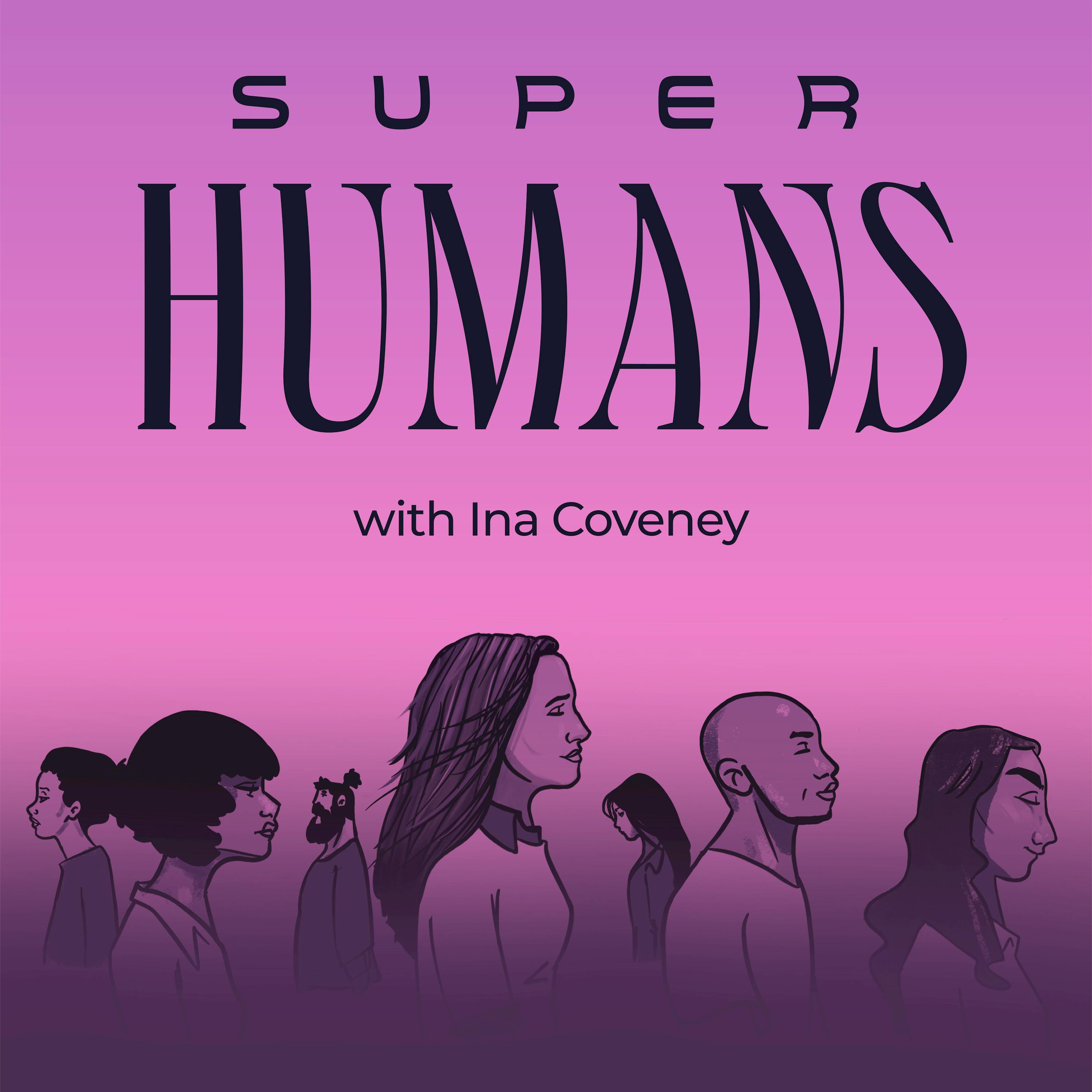
Super Humans with Ina Coveney
Ina Coveney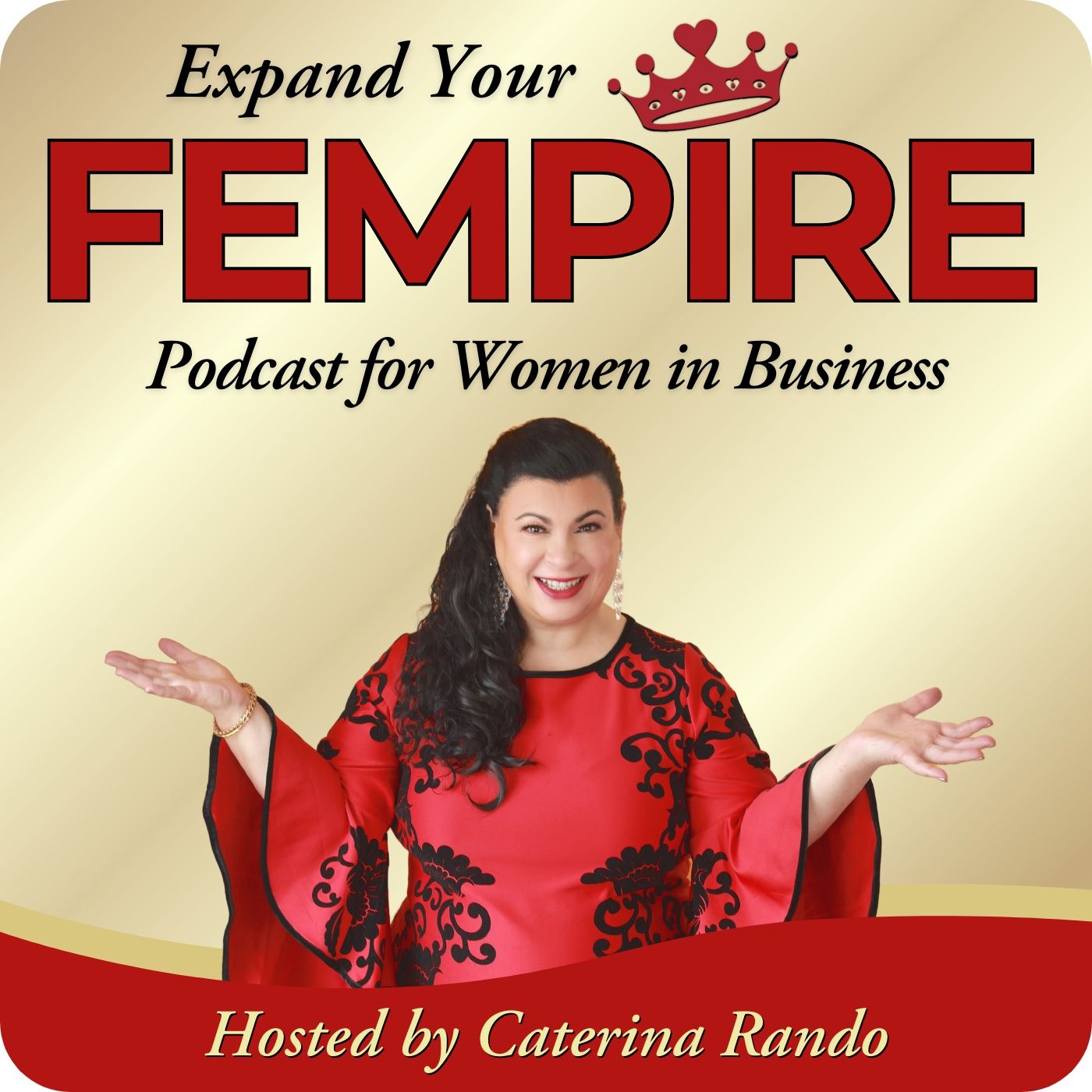
Expand Your Fempire with Caterina Rando
Caterina Rando
Painting Your Path
Clarissa Castillo-Ramsey
Just Wanted to Ask
Anne Zuckerman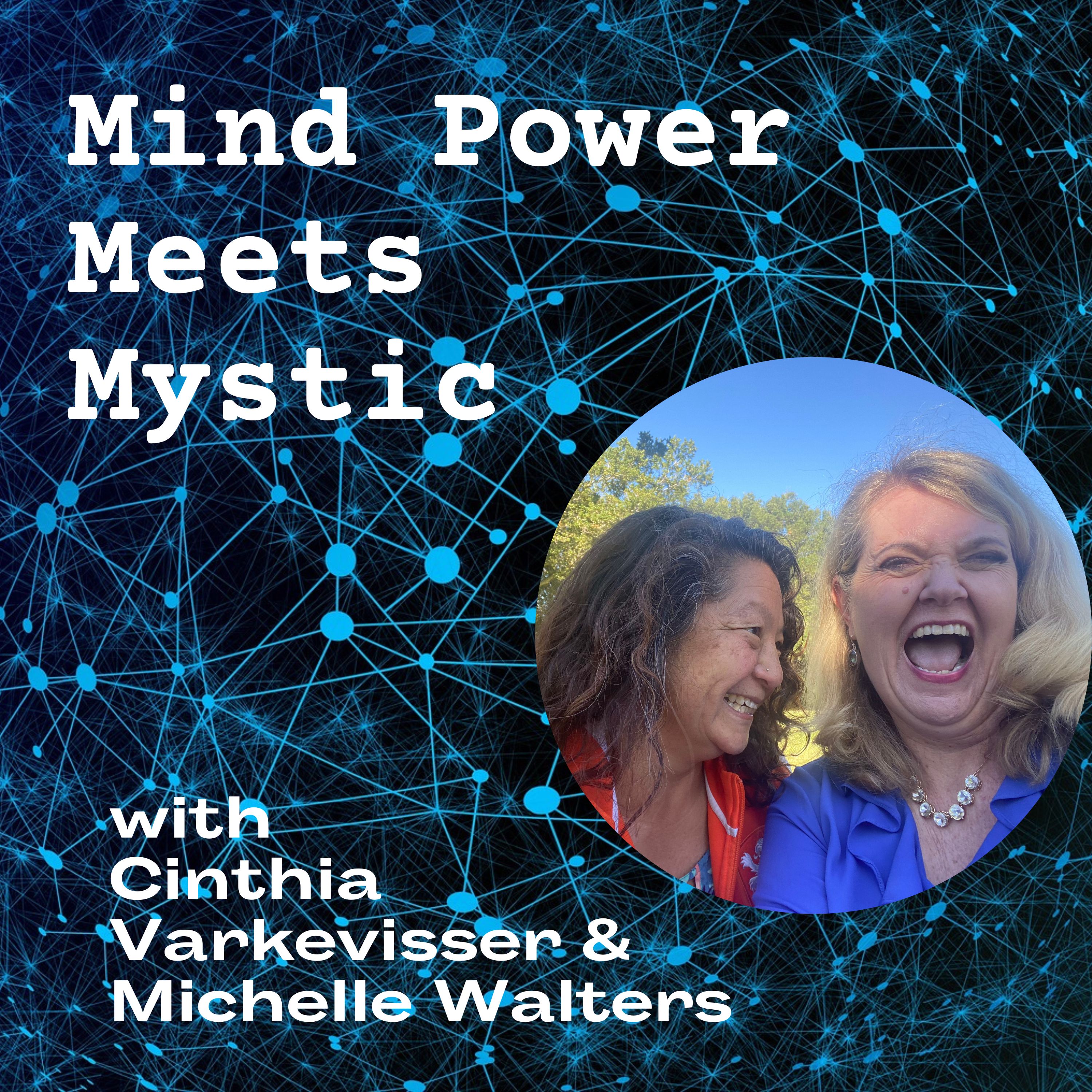
Mind Power Meets Mystic
Cinthia Varkevisser & Michelle Walters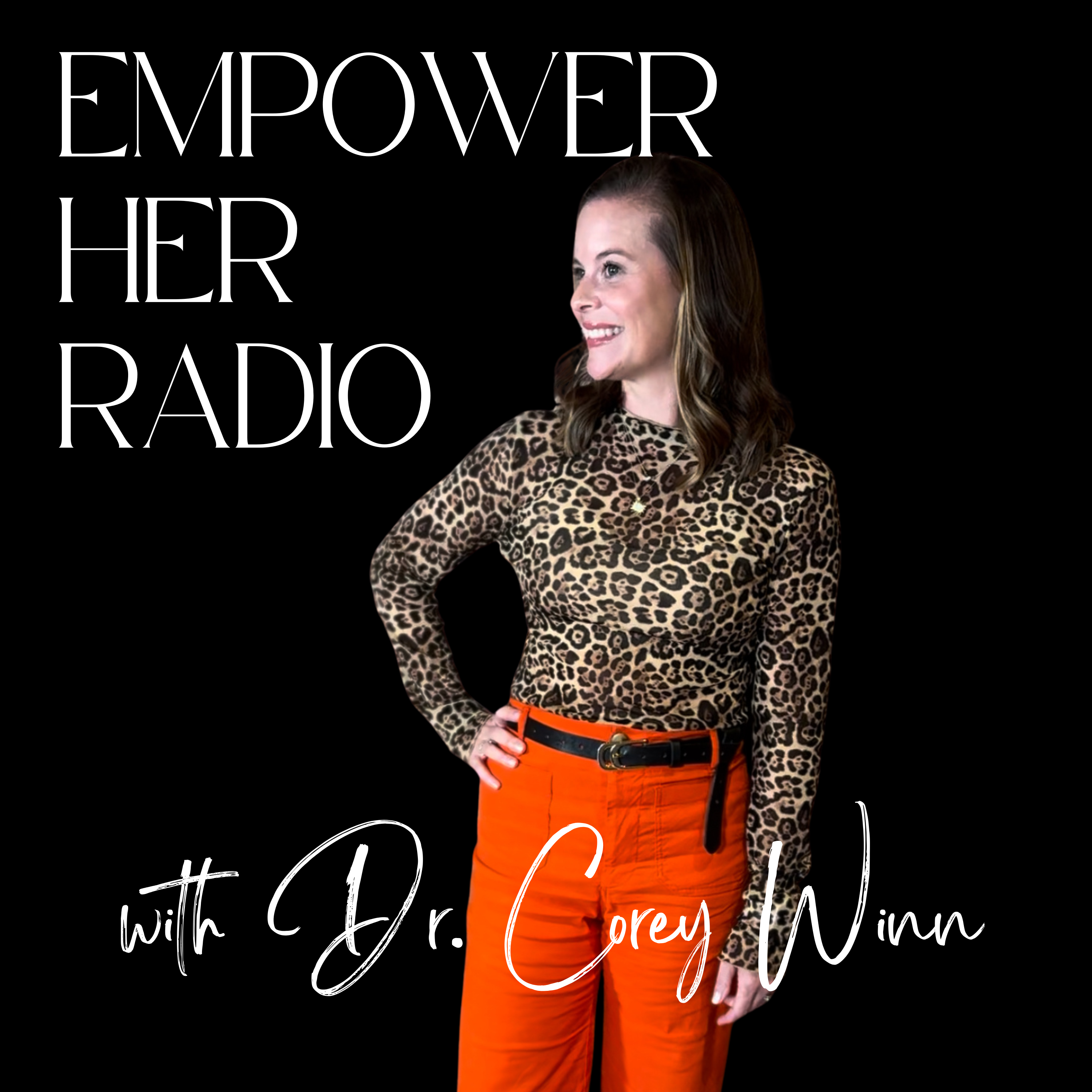
Empower HER Radio with Dr. Corey Winn
Dr. Corey Winn
Casa De Confidence Podcast | Grow Your Business, Life and Confidence
Julie DeLucca-Collins - Business Strategist for Women in Midlife
BECOME EMPOWERED
Sabine Kvenberg
The Pet Parent Hotline | Real Help for Pet Behavior, Budgets, and Everyday Stress
Amy Castro - Pet Parenting & Behavior Expert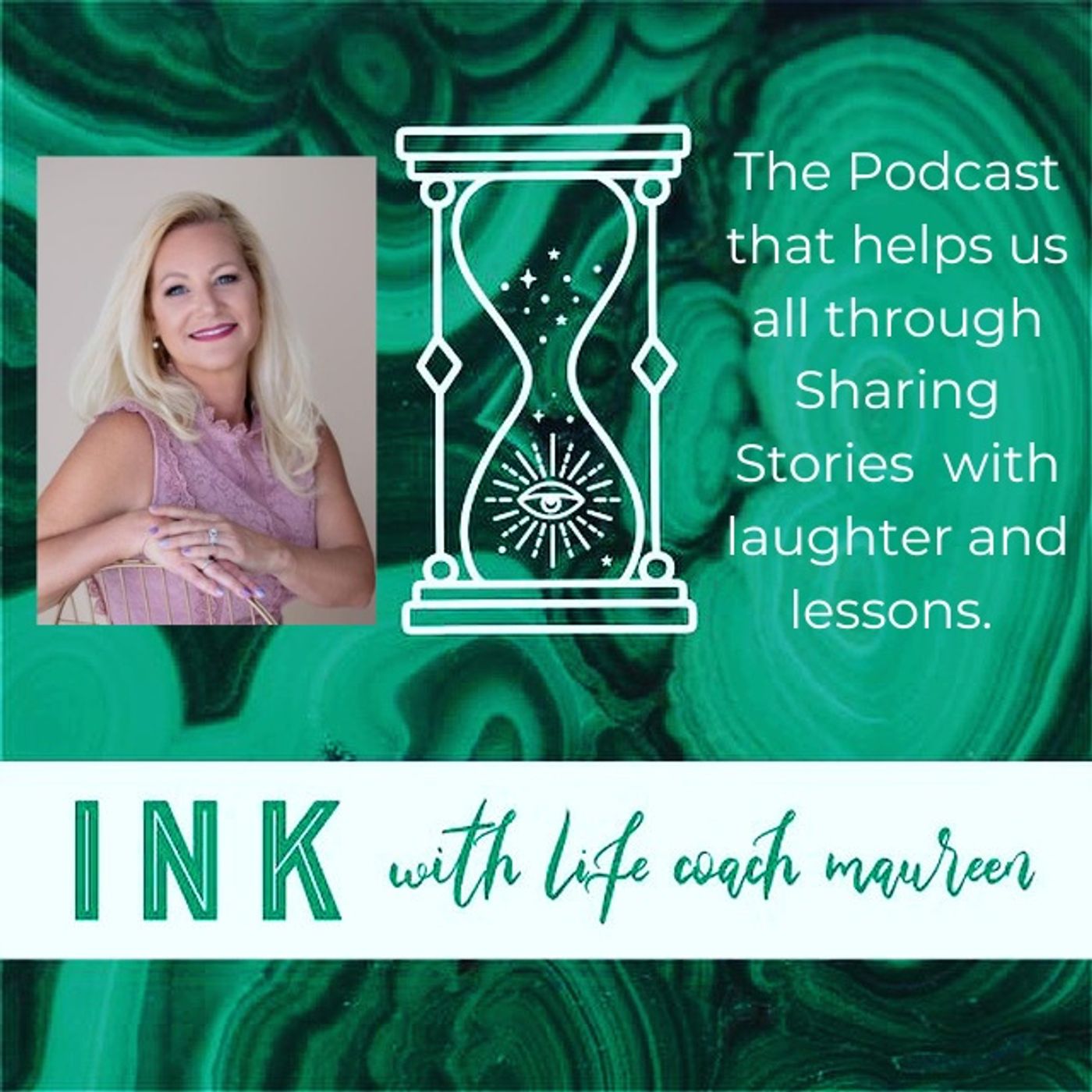
I Never Knew (INK) But My Dog Did! By Lifecoach Maureen
Maureen Scanlon
Podcasting Made Simple
Alex Sanfilippo, PodMatch.com
Grounded in Maine
Amy Bolduc (Fagan)
Ice Cold Case
Madison McGhee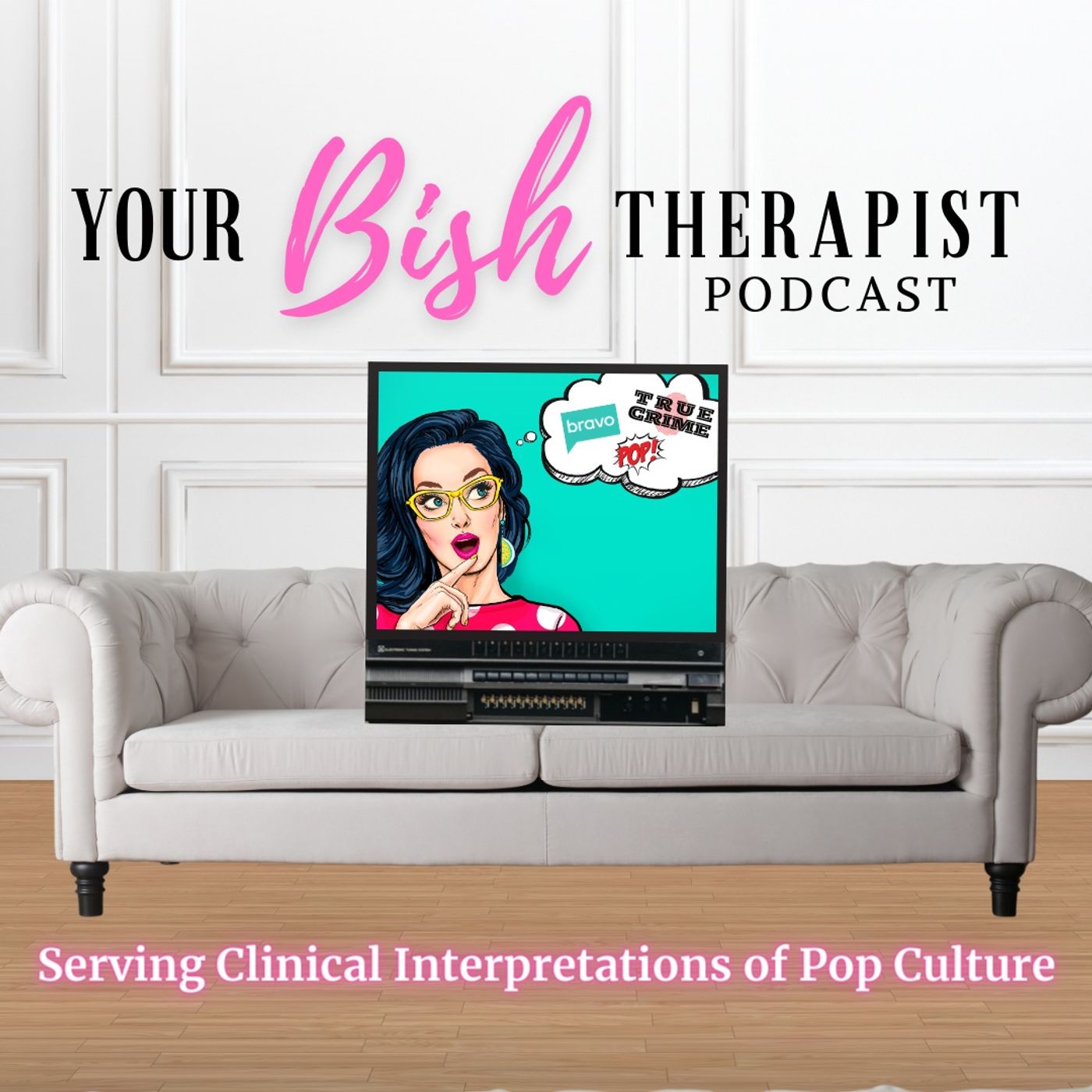
Your Bish Therapist
Melissa Reich
HIListically Speaking with Hilary Russo
Hilary Russo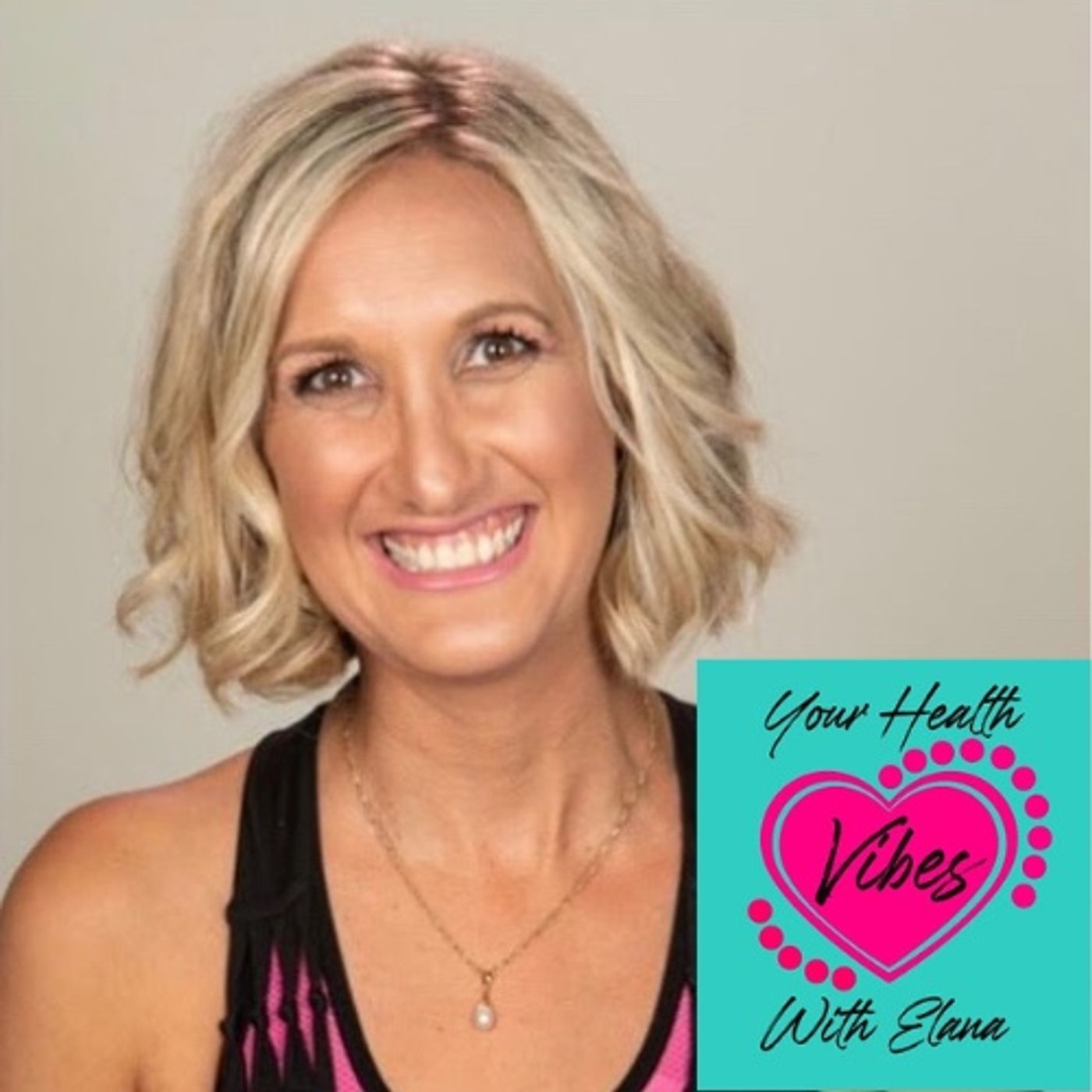
YOUR Health Vibes with Elana
WGSN-DB Going Solo Network
Don't Be Caged By Your Age
Ande Lyons
The Wellness Project with Des
Desiree Argentina
LadyGang
PodcastOne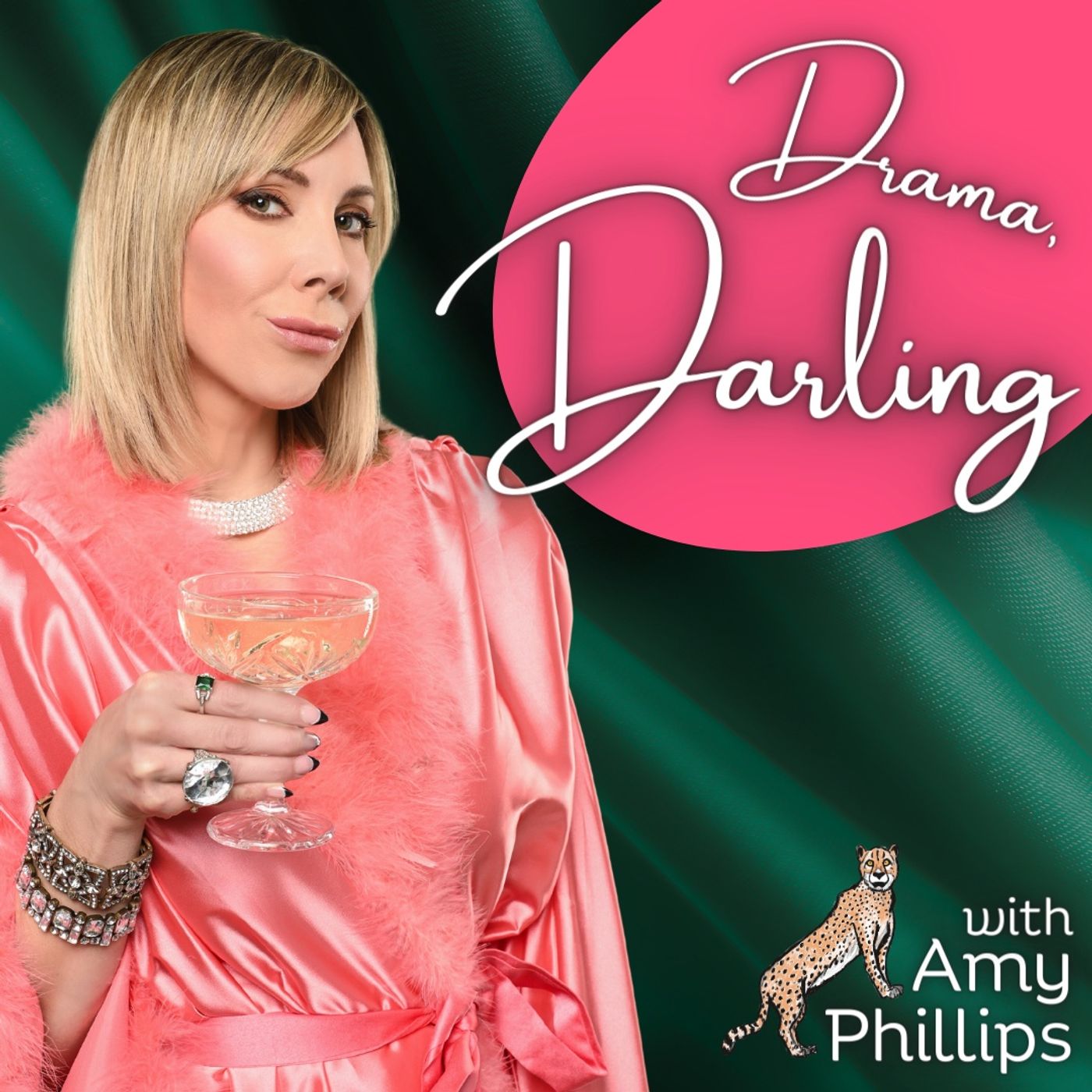
Drama, Darling: A Real Housewives Comedy Podcast
Amy Phillips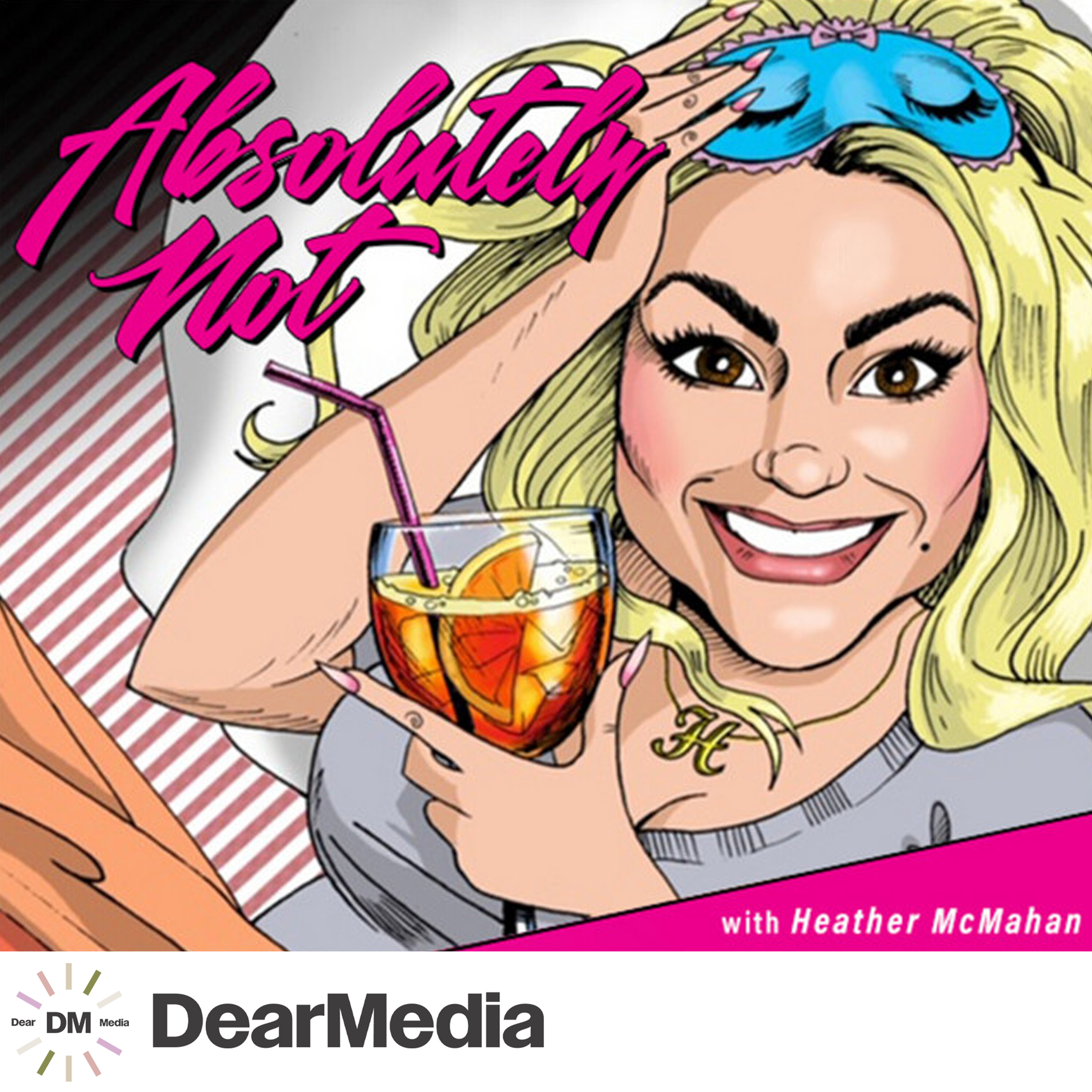
Absolutely Not
Dear Media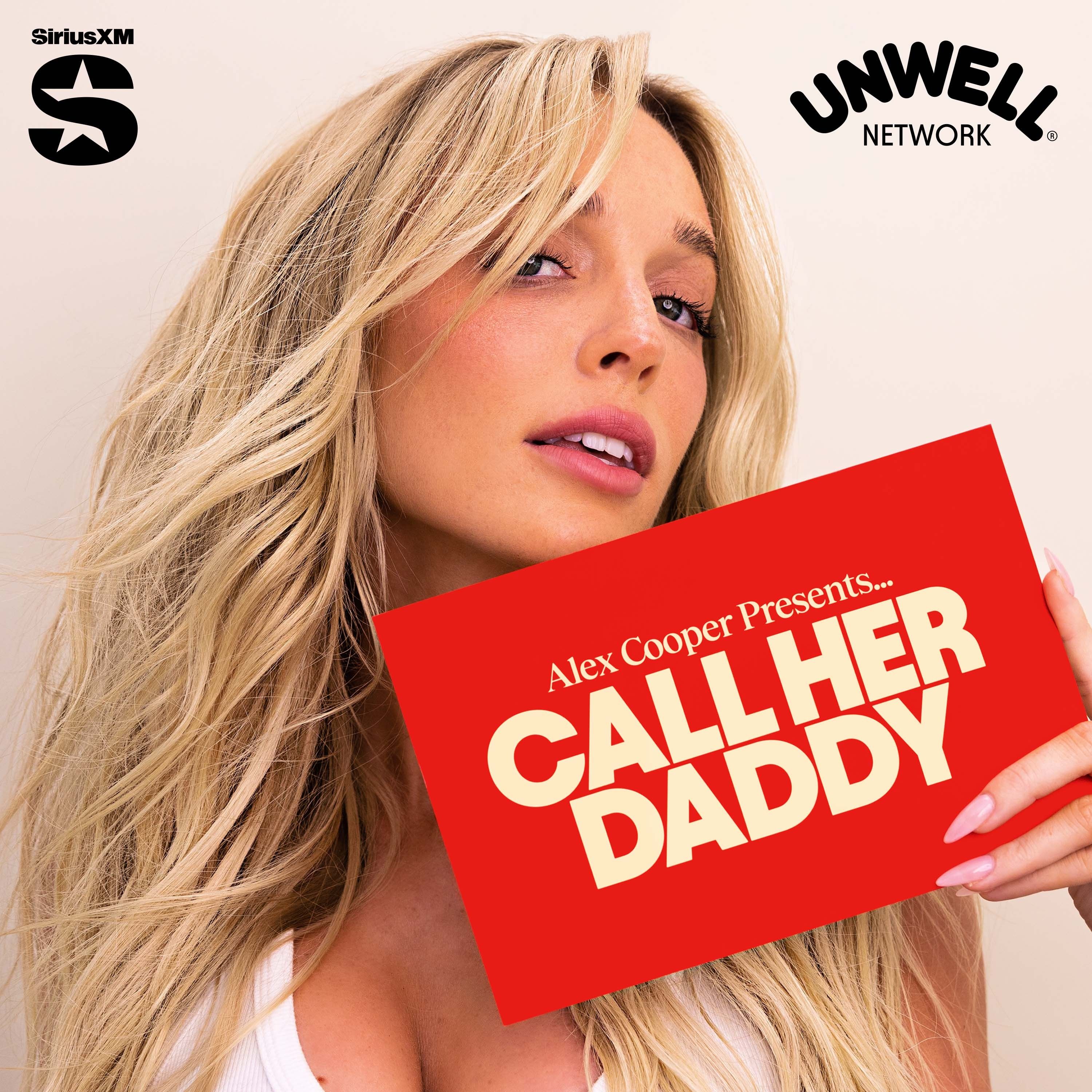
Call Her Daddy
Alex Cooper
Giggly Squad
Hannah Berner & Paige DeSorbo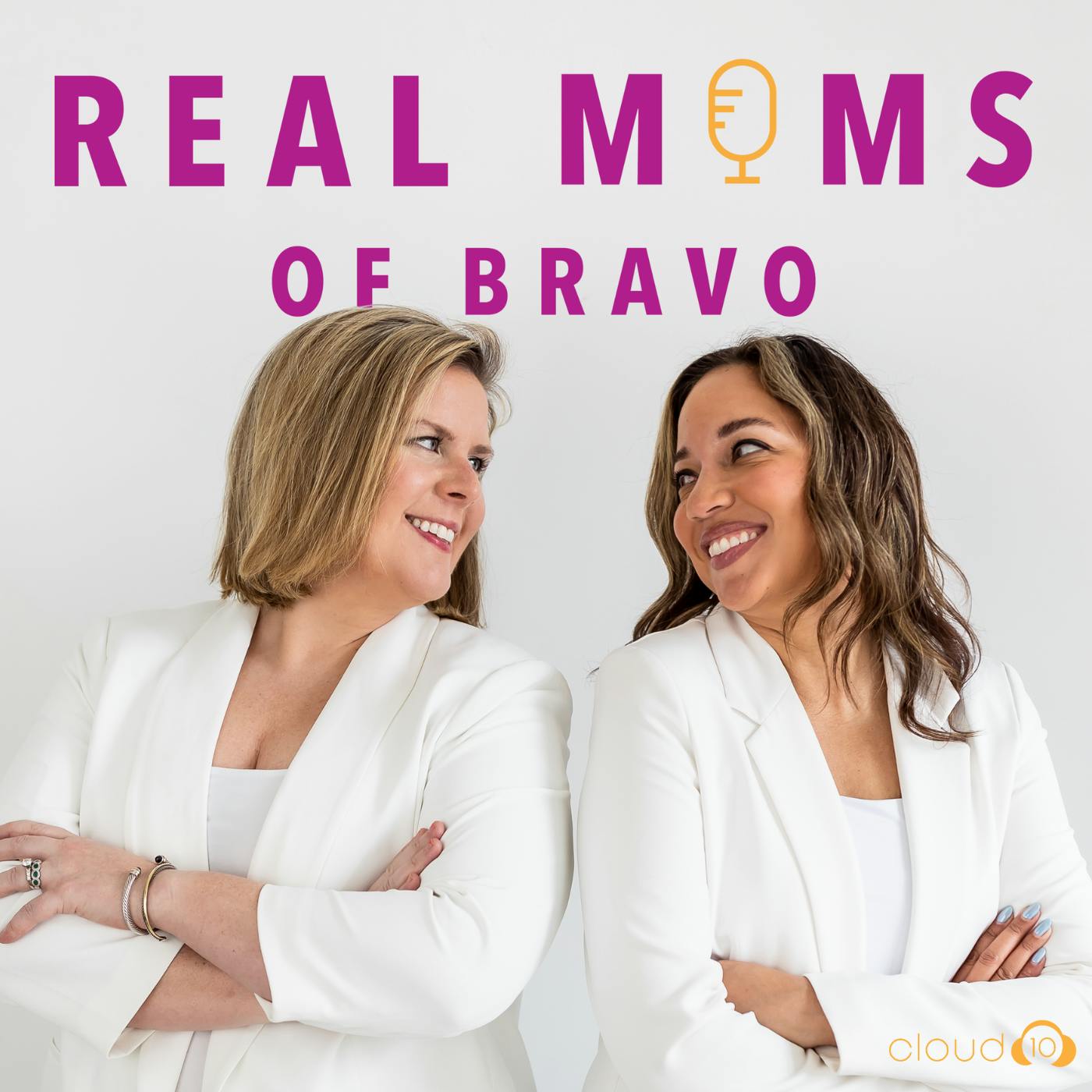
Real Moms of Bravo
Cloud10
Vegan Food Truck Business Podcast
Heather Zeitzwolfe (Savvy Frugal Vegan)
Raise Your Volume Academy with Tiphany Kane, M.Ed.
Tiphany Kane, M.Ed, CEO of KaSa Media Productions
Only One In The Room
Laura Cathcart Robbins
Beyond the Downloads | Podcast & Business Growth
Jenn Dragonette
Feed Your Soul with Kim
Kim McLaughlin
Stassi
PodcastOne








